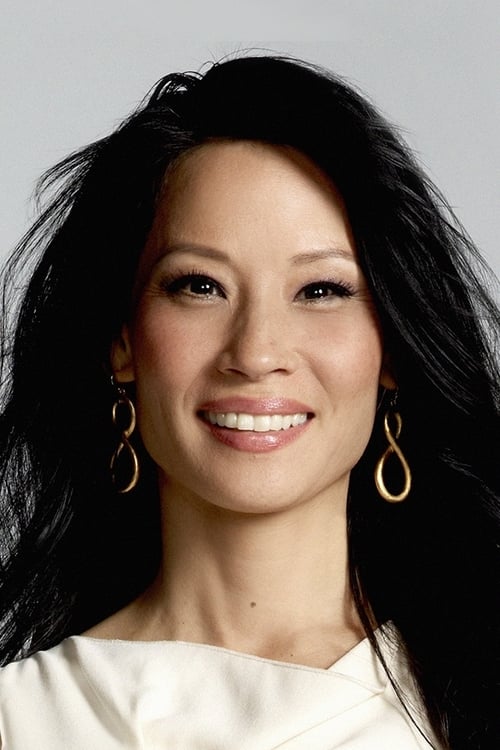Lucy Alexis Liu (born Lucy Liu; December 2, 1968) is an American actress, voice actress, director, producer, singer and artist. She became known for playing the role of the vicious and ill-mannered Ling Woo in the television series Ally McBeal (1998–2002), for which she was nominated for a Primetime Emmy Award for Outstanding Supporting Actress in a Comedy Series and a Screen Actors Guild Award for Outstanding Performance by a Female Actor in a Comedy Series. Liu's film work includes starring as one of the heroines in Charlie's Angels (2000), portraying O-Ren Ishii in Kill Bill (2003), and starring roles in the main casts of Payback (1999), Chicago (2002), and the animated film series Kung Fu Panda (2008–present) portraying the character Master Viper.
In 2008, she starred in an ABC comedy-drama, Cashmere Mafia, which ended after one abbreviated season. The show was one of only a few American television shows to have an Asian American series lead. In 2012, Liu joined the cast of the TNT series Southland in the recurring role of Jessica Tang, for which she won the Critics' Choice Television Award for Best Drama Guest Actress. She is currently co-starring in the Sherlock Holmes–inspired crime drama series Elementary as Joan Watson for which she won the Seoul International Drama Award for Best Actress, and voicing Silvermist in Disney's Tinker Bell film series.
Description above from the Wikipedia article Lucy Liu, licensed under CC-BY-SA, full list of contributors on Wikipedia.
ESTJ personality types are the pragmatic organisers, they like to get things done and done properly. They have little time for anything ethereal, woolly or conceptual preferring facts, figures, plans and procedures. These are the action-oriented characters who cut to the car chase and move quickly to completion, taking the least circuitous route, A-Z no deviation. The strength of the ESTJ is the desire, and ability, to adopt a decisive stance, take charge and get the job done which makes them 'natural' leaders whom others will readily follow.
ESTJs are built to project manage, which is why they are often found in Operations type roles, quickly weighing up the situation, setting targets and marshalling the resources to make sure the job is done - on time and within budget. The ESTJ has a strong work ethic and this includes loyalty to the cause - whatever that cause is. This desire to get things done may mean that they ignore the niceties, the softer issues as they tend not to be so well-tuned in to how other people are feeling. There is a strong competitive edge to the ESTJ, and a need to assume control and this can often make it difficult for others to deflect them from their chosen course of action. The ESTJ simply wants to get on and get things done. Formal and structured the ESTJ works best when everyone is clear as to the ground-rules, (the ESTJ will happily create them if they are lacking). Practical planners, ESTJs are factual, accurate, detailed and process driven the ESTJ will bring order, structure and focus to their environment.
Their ability to jump in and take charge can, however, become a weakness as the ESTJ will follow the traditional, tried-and-tested route, and may want to dive in quickly, get their hands dirty and ignore the advice of those who may want to reflect or try a different approach. This can mean the ESTJ will be traditional and often quite conservative in their approach, preferring the known to experimenting or trying a more novel, creative approach so they may not always adapt well to change, and indeed if pushed hard can make formidable opponents to any new order. For the ESTJ change must make logical sense and ‘if it ain’t broke then why fix it?’ ESTJs thrive on order and continuity. ESTJs are traditional and hierarchical, they exude work ethic. Power, position and prestige should be worked for and earned. Laziness is viewed with scorn and the credo is ‘If you can’t stand the heat, get out of the kitchen!’
The desire to ‘do’ can also make the ESTJ very present focused and so they may not necessarily appreciate how such present actions may impinge on the future nor do they excel at predicting or anticipating future trends or forecasting as they are keen to make quick decisions and are built to get to closure as quickly as possible in order to get the job done. So, the ESTJ may rush in without stopping to consider the full range of options open as their prime focus will be to get on with it and as such they may be difficult to budge. They plan with logic and objectivity, relying on empirical evidence and data rather than emotions. If something needs to be planned, organised followed-through then the ESTJ is the person to do it.
ESTJs are factual, accurate, detailed and process driven the ESTJ will bring order, structure and focus to their environment. Being extraverted, their focus involves organisation of people, tasks, processes, etc which all translates into “management.” While ENTJs enjoy organising and mobilising people according to their own ideas, ESTJs are content to enforce ‘the rules,’ often dictated by tradition or handed down from a higher authority, if a job needs to be done, (‘done’ being the operative word), then leave it to an ESTJ. The extravert side also means they will have little trouble letting everyone know exactly where they stand. They tend to dislike sloppiness or mess and engender order and discipline within projects, teams and situations. Emotional arguments or pleading won’t work as only hard facts and logical reasoning ‘compute’ with the ESTJ.
Choose another celebrity type to compare side by side the different approaches work, attitudes to conflict and the way they engage with others.
